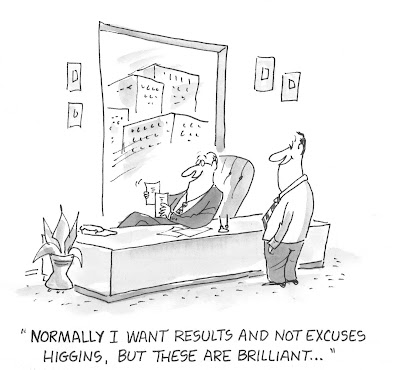Why do we pay certain employees so much?
Duh, because they make us a heck of a lot of money!
Sure, that may be true, but I guess that�s not enough. When a team of 5 salespeople earn you 7 million, you might pay them 100k each. But when a team of 5 consultants, attorneys or security analysts makes you 7 million, you often end up paying them 1 million each! And why do we do that!?
Perhaps because their skills are more specialised and scarce and if they walk out of the door we�d have a hard time replacing them�?
Sure, that may be true, but I guess that�s not enough either. Because if we would have a highly specialised sales team, with technical knowledge perfectly attuned to our particular product range, we would likely still not pay them 1 million each, although we�d have a hard time replacing them if they�d leave. And that�s because they too would not find it easy to find a replacement job. Their skills are so specialised, attuned to our particular product, that they would not be able to make the same kind of money for any other company, and hence would be much less valuable anywhere else, to anyone else. Nope, we don�t have to pay them that much to keep them; they don�t have anywhere else to go!
But the consultants, attorneys and security analysts do. They can just take their rolodex, their files, their client base and expertise with them, and stroll into the office and payroll of our competitor, and earn them the same 7 million, right?
Well� maybe not. We often think they can just �take it with them�; they think that they can just take it with them, and our competitor usually thinks they can just take it with them. But often we�re all wrong.
For example, Professor
Boris Groysberg � at the Harvard Business School � examined the portability of star security analysts� performance. Security analysts, as you may know, are employed by investment banks to analyse companies in a particular industry. They, among others, produce earnings forecasts, buy and sell recommendations, and detailed reports on individual companies. If they�re any good � because they, for instance, produce quite accurate earnings forecasts � they can easily make a million or three per year � and, yes, that is British Pounds millions.
Investment banks pay them so much because they think they can easily take their skills, financial models, industry contacts, etc. to a different bank if they wanted to, and analyse the same sectors and companies. However, Boris found that that is actually not as simple as it seems�
He analysed the performance of 316 top-ranked security analysts who switched firms, using rankings published by �the Institutional Investor All-America Research Team poll�. He found that star analysts who switched employers immediately experienced a significant decline in their performance. The effect was substantial. For example, the chance that a particular analyst would come out top of his sector�s league table (having made the most accurate forecasts etc.) would drop with 50% if he had just switched firms. Actually, on average, it would take such an analyst five years to recover and make up for the switch and subsequent drop in performance.
Hence, even security analysts, whose work seems highly individual and not dependent at all on the particular organisation that they are working in, experience a very significant decline in their performance when they switch firms. Apparently, the soft stuff, such as the intellectual capital embedded in the fabric of the organisation, their relationships with colleagues, and all sorts of other social and tacit processes (which are difficult to identify, observe or even name!) play a huge role, even in the work of such star performers. Take them out of their organisation and their ability vanishes with the severance of the social ties.
This means that we probably all overestimate the portability of our star workers, and of ourselves...
It also means we pay them too much.
 T. Boone Pickens is known as the �Oracle of Oil� because of his uncanny ability to predict the direction of fuel prices, and is the author of a new book, The First Billion Is the Hardest: Reflections on a Life of Comebacks and America's Energy Future.
T. Boone Pickens is known as the �Oracle of Oil� because of his uncanny ability to predict the direction of fuel prices, and is the author of a new book, The First Billion Is the Hardest: Reflections on a Life of Comebacks and America's Energy Future.
 Like many states, Massachusetts has an income tax. But in Massachusetts, people are trying to do something about it. Libertarian activist Carla Howell organized an initiative in 2002 that would have abolished the state income tax. It got over 45% of the vote, and now she's
Like many states, Massachusetts has an income tax. But in Massachusetts, people are trying to do something about it. Libertarian activist Carla Howell organized an initiative in 2002 that would have abolished the state income tax. It got over 45% of the vote, and now she's 


